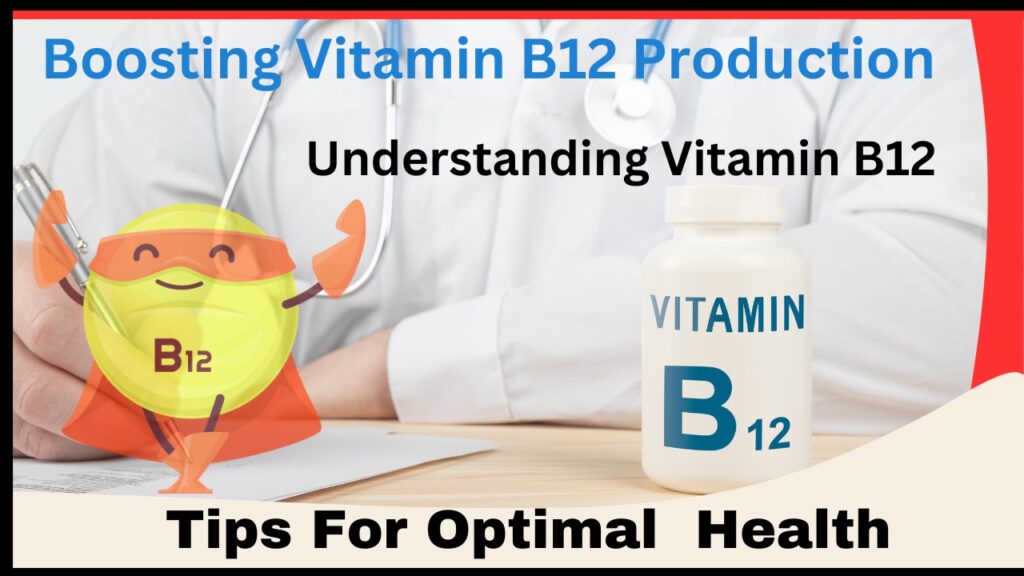Vitamin B12 is crucial for various bodily functions, including red blood cell formation, DNA synthesis, and maintaining neurological health. Unlike other vitamins, B12 is not produced by plants or animals but is synthesized by bacteria. Consequently, its primary dietary sources are animal products. Deficiency in vitamin B12 can lead to serious health issues, including anemia, fatigue, and neurological disorders. This article explores various dietary strategies to enhance the intake and absorption of vitamin B12, ensuring optimal health and well-being.
Understanding Vitamin B12
Sources and Importance
Vitamin B12, also known as cobalamin, is essential for:
- Red Blood Cell Formation: Helps prevent anemia by aiding in the production of healthy red blood cells.
- Neurological Function: Supports the maintenance of the myelin sheath that protects nerve fibers.
- DNA Synthesis: Plays a critical role in the formation of DNA, which is vital for cell division.
Natural Sources
Vitamin B12 is predominantly found in animal products, including:
- Meat: Beef, liver, and chicken.
- Fish: Salmon, trout, and tuna.
- Dairy Products: Milk, cheese, and yogurt.
- Eggs: Particularly in the yolk.
For vegetarians and vegans, it is crucial to seek fortified foods or supplements to meet their B12 requirements.
Dietary Tips to Boost Vitamin B12 Intake
1. Include Animal Products
Meat and Poultry
Incorporate lean cuts of meat and poultry into your diet. Beef liver is one of the richest sources of vitamin B12. Opt for grass-fed beef and free-range poultry for higher nutrient content.
Fish and Seafood
Fish, particularly fatty fish like salmon, mackerel, and sardines, are excellent sources of vitamin B12. Shellfish, such as clams and oysters, also provide significant amounts of this vitamin.
2. Dairy Products
Milk and Cheese
Regular consumption of dairy products like milk and cheese can help maintain adequate B12 levels. Choose organic and hormone-free options for better quality.
Yogurt
Yogurt not only provides vitamin B12 but also contains probiotics, which can enhance gut health and improve B12 absorption.
3. Eggs
Eggs are a versatile and nutrient-rich food. Include whole eggs in your diet, as the yolk contains the majority of the B12 content.
4. Fortified Foods
Plant-Based Milk
For those following a vegan or vegetarian diet, plant-based milk alternatives like almond, soy, and oat milk often come fortified with vitamin B12.
Breakfast Cereals
Many breakfast cereals are fortified with vitamin B12. Check the labels to ensure you’re choosing those with added B12.
5. Nutritional Yeast
Nutritional yeast is a popular supplement among vegans. It has a cheesy flavor and can be sprinkled on a variety of dishes. Many brands fortify their nutritional yeast with vitamin B12, making it a valuable addition to a plant-based diet.
6. Supplements
B12 Pills
If dietary intake is insufficient, consider taking a vitamin B12 supplement. Cyanocobalamin and methylcobalamin are common forms available in pills.
Sublingual Supplements
Sublingual (under the tongue) supplements can be more effective for some people as they allow direct absorption into the bloodstream.
Injections
For those with severe deficiencies or absorption issues, vitamin B12 injections may be recommended by healthcare professionals.
Enhancing B12 Absorption
Gut Health
Probiotics
Probiotics can support gut health, which is essential for nutrient absorption, including B12. Include probiotic-rich foods like yogurt, kefir, sauerkraut, and kimchi in your diet.
Prebiotics
Prebiotics are fibers that feed beneficial gut bacteria. Foods like garlic, onions, bananas, and whole grains can help maintain a healthy gut flora, aiding in better B12 absorption.
Addressing Medical Conditions
Certain medical conditions, such as pernicious anemia, Crohn’s disease, and celiac disease, can impair B12 absorption. If you have any of these conditions, work with your healthcare provider to manage them effectively and ensure adequate B12 intake.
Avoid Excessive Alcohol
Excessive alcohol consumption can damage the stomach lining and intestines, impairing the absorption of vitamin B12. Moderation is key to maintaining good health and optimal nutrient absorption.
Monitoring B12 Levels
Regular Blood Tests
Regular blood tests can help monitor your B12 levels and detect any deficiencies early. This is especially important for older adults, vegetarians, vegans, and individuals with absorption issues.
Symptoms of Deficiency
Be aware of symptoms of B12 deficiency, which include:
- Fatigue and weakness
- Anemia
- Neurological issues, such as numbness and tingling in the hands and feet
- Difficulty walking and balance problems
- Memory loss and cognitive difficulties
If you experience any of these symptoms, consult a healthcare professional for evaluation and treatment.
Conclusion
Ensuring adequate vitamin B12 intake is crucial for maintaining optimal health. By incorporating a variety of B12-rich foods, considering fortified options, and taking supplements if necessary, you can prevent deficiencies and support overall well-being. Additionally, focusing on gut health and managing medical conditions that affect absorption can further enhance your body’s ability to utilize this vital nutrient. Regular monitoring and a balanced diet are key to maintaining healthy B12 levels and enjoying the benefits of improved energy, neurological function, and overall health.
